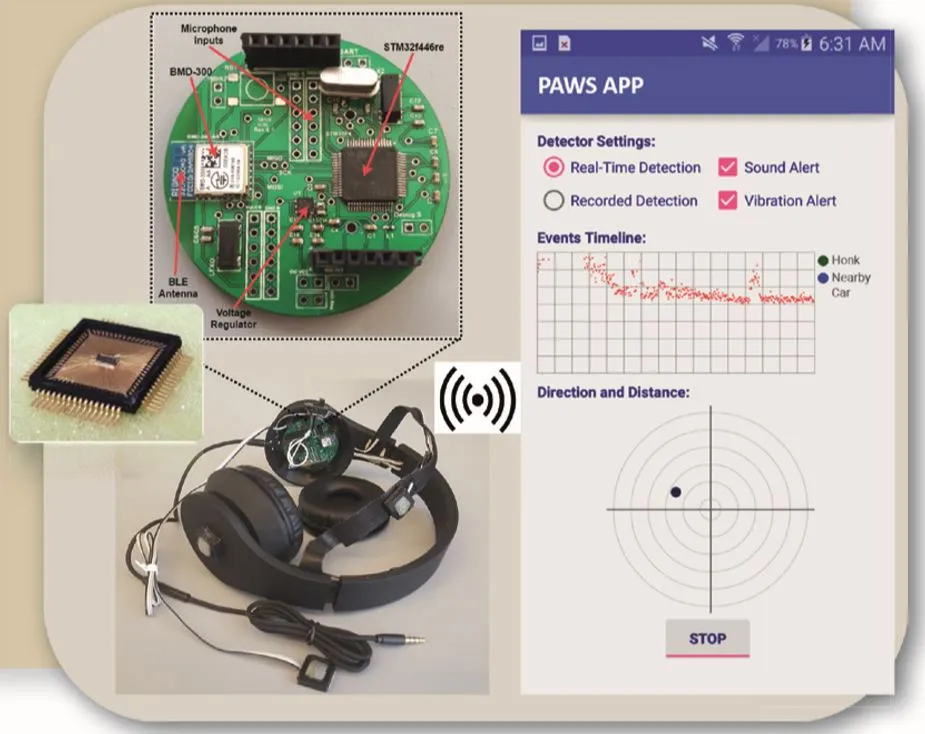The Data Science Institute (DSI) at New York’s Columbia University is designing an intelligent headphone system that uses miniature microphones and intelligent signal processing to detect sounds of approaching vehicles.
March 18, 2020
Read time: 1 min

The institute says the system will be able to send an audio alert to the pedestrian’s headphones if a hazard appears nearby. The headset will also include a low-power data pipeline to process sounds near the pedestrian. This pipeline will also contain a custom integrated circuit that extracts relevant features from the sounds while using little battery power, the institute adds. Machine learning models on the user’s smartphone will classify acoustic cues from city streets and nearby vehicles to warn users of danger.








